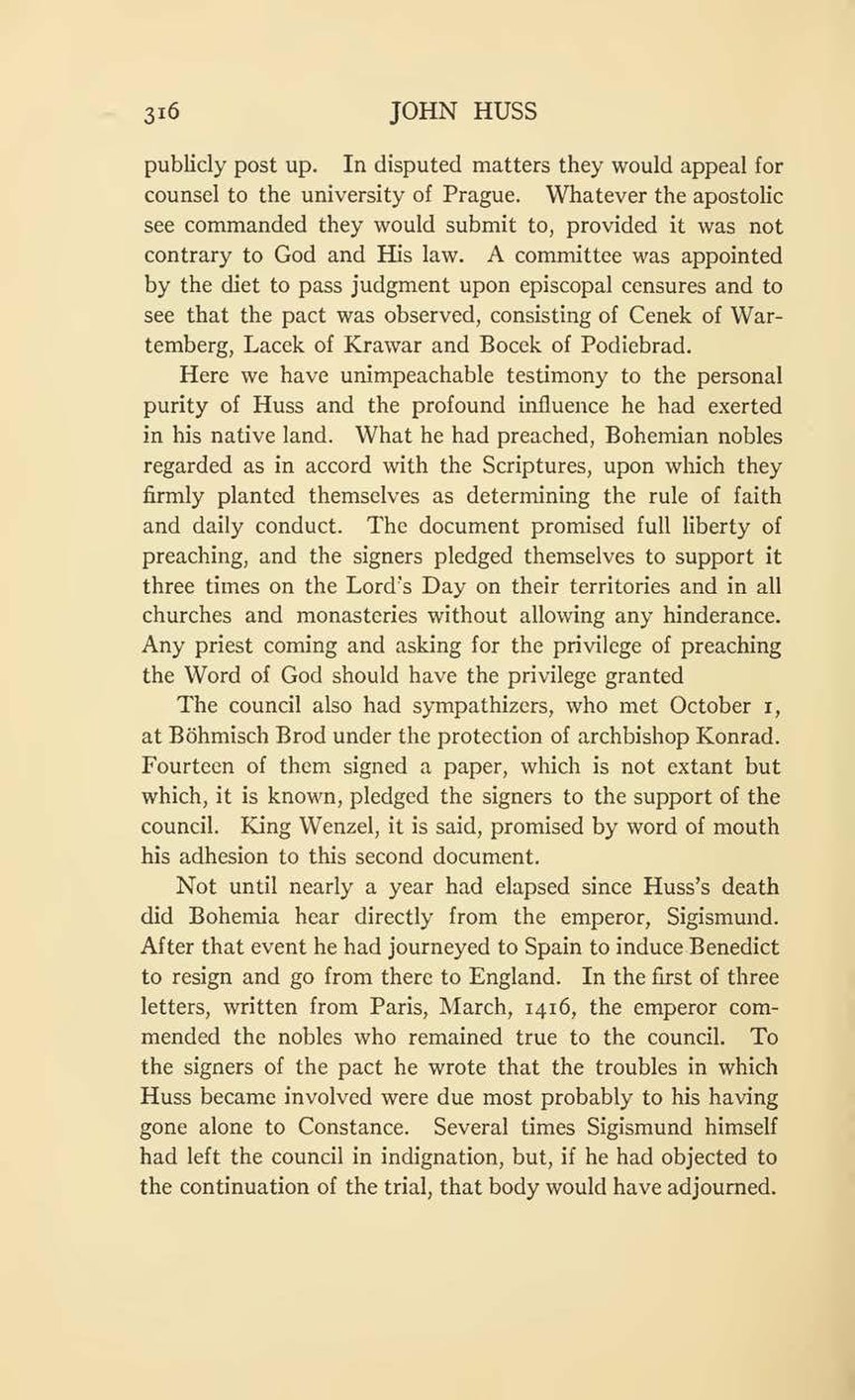publicly post up. In disputed matters they would appeal for counsel to the university of Prague. Whatever the apostolic see commanded they would submit to, provided it was not contrary to God and His law. A committee was appointed by the diet to pass judgment upon episcopal censures and to see that the pact was observed, consisting of Cenek of Wartemberg, Lacek of Krawar and Bocek of Podiebrad.
Here we have unimpeachable testimony to the personal purity of Huss and the profound influence he had exerted in his native land. What he had preached. Bohemian nobles regarded as in accord with the Scriptures, upon which they firmly planted themselves as determining the rule of faith and daily conduct. The document promised full liberty of preaching, and the signers pledged themselves to support it three times on the Lord’s Day on their territories and in all churches and monasteries without allowing any hinderance. Any priest coming and asking for the privilege of preaching the Word of God should have the privilege granted
The council also had sympathizers, who met October 1, at Böhmisch Brod under the protection of archbishop Konrad. Fourteen of them signed a paper, which is not extant but which, it is known, pledged the signers to the support of the council. King Wenzel, it is said, promised by word of mouth his adhesion to this second document.
Not until nearly a year had elapsed since Huss’s death did Bohemia hear directly from the emperor, Sigismund. After that event he had journeyed to Spain to induce Benedict to resign and go from there to England. In the first of three letters, written from Paris, March, 1416, the emperor commended the nobles who remained true to the council. To the signers of the pact he wrote that the troubles in which Huss became involved were due most probably to his having gone alone to Constance. Several times Sigismund himself had left the council in indignation, but, if he had objected to the continuation of the trial, that body would have adjourned.
